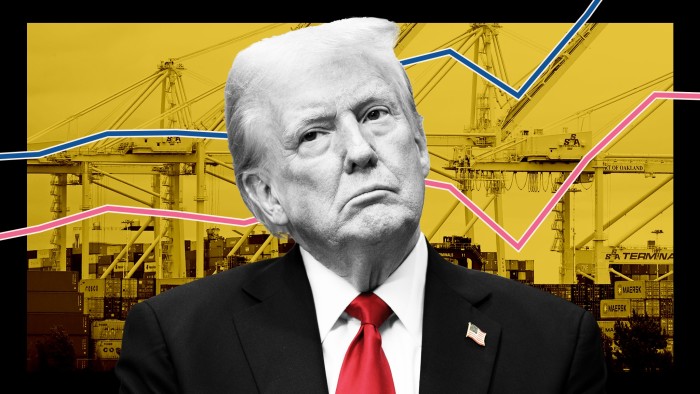[adrotate group="2"]
Mexico and Canada are working towards a collaborative approach to counter the potential imposition of significant tariffs by U.S. President Donald Trump, which could take effect as early as next week.
Since his election win in November, Trump has threatened to impose a 25 percent tariff on all exports from these neighboring countries, citing concerns over increasing illegal immigration and the trafficking of fentanyl into the U.S. He indicated that the tariffs could be applied starting February 1.
An insider familiar with Trump’s administration noted, “Trump is very straightforward about this. We give you access to the U.S. market; what do you offer in return?”
A large portion of Mexico and Canada’s exports—approximately 75 percent—are directed towards the U.S., supported by the USMCA trade agreement established during Trump’s presidency. This dependence leaves both countries vulnerable to U.S. demands. Mexico, in particular, depends on the U.S. for about 70 percent of its natural gas and has often been implicated by Trump in discussions concerning illegal immigration and drug trafficking.
The Canadian Chamber of Commerce has warned that if Trump follows through on his tariff threats, Canada’s GDP could decline by 2.6 percent, translating to an estimated loss of C$78 billion (around US$54 billion), affecting each Canadian by roughly C$1,900 annually.
Despite this mutual threat, relations between Mexico and Canada had deteriorated last year, primarily due to comments made by Canada’s ambassador regarding changes in the Mexican judiciary. Relations worsened in November when Canadian Prime Minister Justin Trudeau suggested the possibility of excluding Mexico from USMCA and expressed concerns about Chinese investments in Mexico, seemingly to gain favor with Trump.
In response to the tariff threats, both nations have been reconvening their diplomatic efforts. Reports indicate that there has been an increase in communication among government officials from Mexico and Canada over the past month.
Diego Marroquin Bitar from the Wilson Centre said the previous political tensions may have impacted Ottawa’s responses, but Canada seems to recognize the importance of aligning with Mexico against U.S. tariffs. The two nations aim to present a unified argument illustrating why such tariffs would be detrimental for consumers in all three countries.
Trudeau recently commented on the need for increased Canadian exports of energy and materials—such as steel and aluminum—to support the U.S. economy, reflecting the countries’ interdependence.
Both countries are preparing their lists for retaliatory tariffs while also attempting to engage in discussions with the Trump administration regarding border security. Mexico has conceptualized a “carousel” tariff strategy, where affected products may change periodically to maintain pressure on key Republican lawmakers.
Canada is also preparing for potential reciprocal actions targeted to minimize impacts on its economy while maximizing discomfort in the U.S. market, according to Jonathan Wilkinson, the Canadian Minister of Energy and Natural Resources.
A review of the USMCA is scheduled for 2026, and as Trump pursues efforts to address the trade deficit with both nations, consultations have begun in Washington. This could indicate a push from Trump to renegotiate the terms of USMCA rather than just a review.
The U.S. administration is expected to seek changes aimed at reducing the foreign content in vehicles and addressing concerns regarding the economic ties between Mexico and China.
Trump has emphasized the trade deficits with Canada and Mexico, even suggesting the possibility of Canada becoming a U.S. state to resolve these deficits. However, the U.S. remains a significant importer of crude oil, with Canada supplying about 60 percent of that.
Imposing tariffs, as Mark Scholz of the Canadian Association of Energy Contractors stated, could negatively impact American consumers and threaten U.S. energy security.
In addition to trade issues, Canada has committed to increasing its border security measures, investing over $1 billion in resources, even though Trudeau noted that only a small fraction of illegal migrants and drugs entering the U.S. originate from Canada.
Mexico has also heightened its immigration enforcement and is now accepting asylum seekers awaiting their claims in the U.S.
Trump has proposed involving U.S. special forces in combating drug cartels in Mexico, expressing satisfaction with dealings concerning Mexican issues.
The approach taken by Trump’s administration has fundamentally altered the traditional processes typically involved in trade negotiations, introducing an element of unpredictability and strategic leverage.
photo credit: www.ft.com
[adrotate group="2"]





